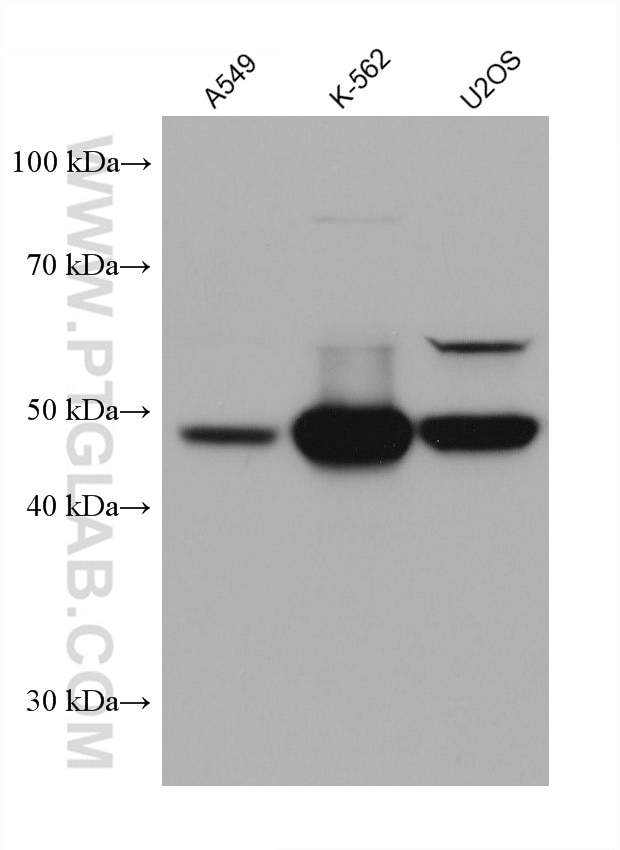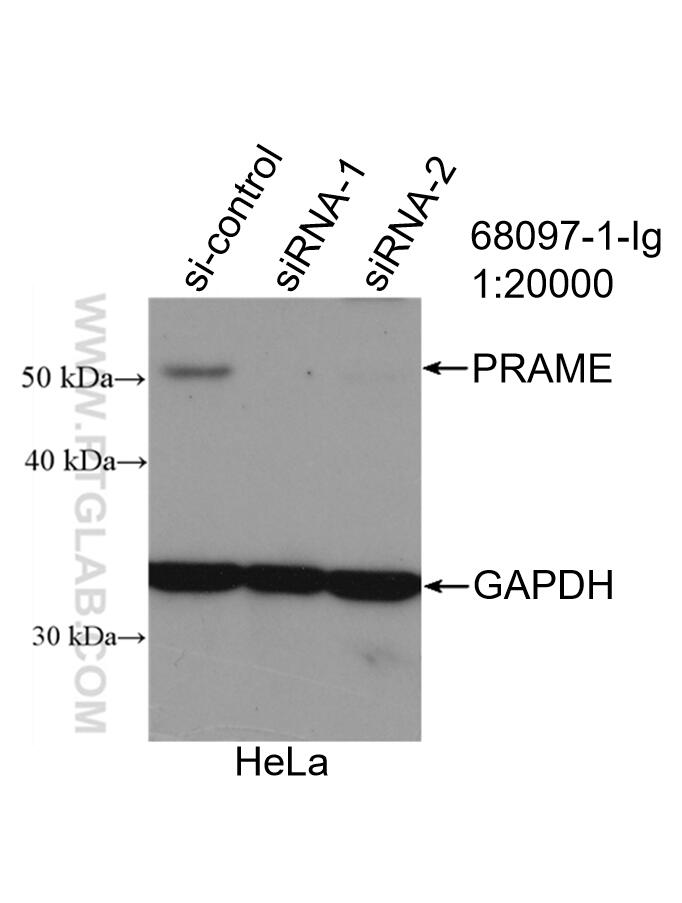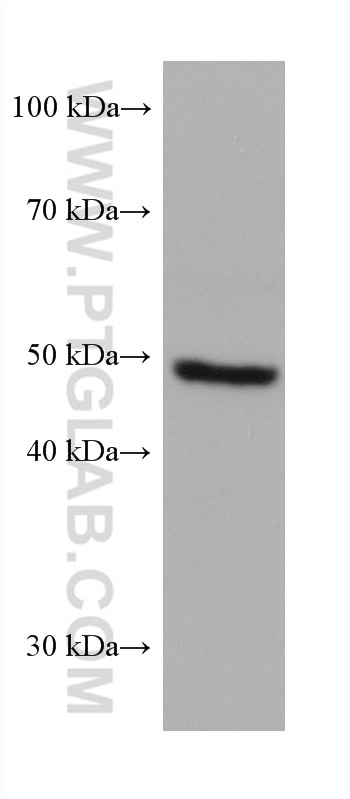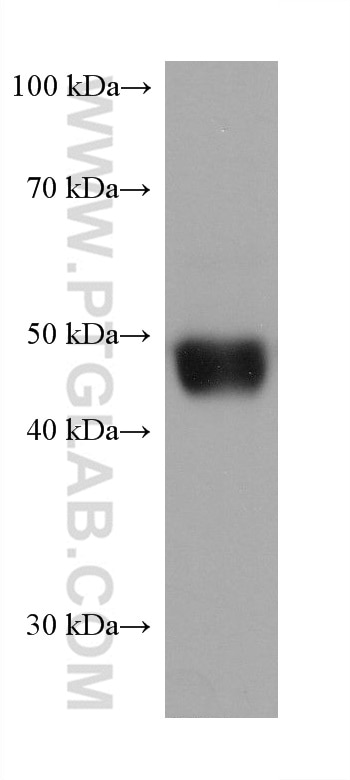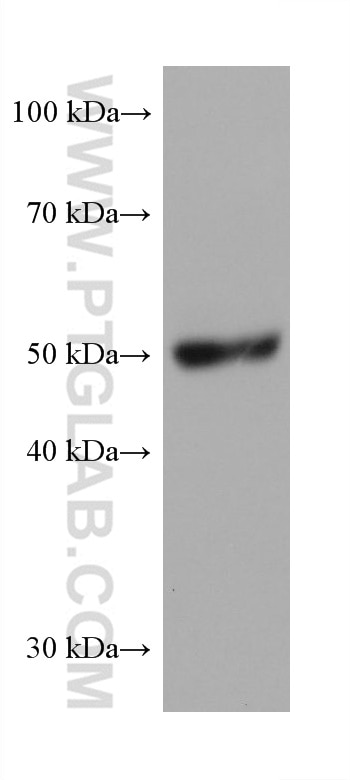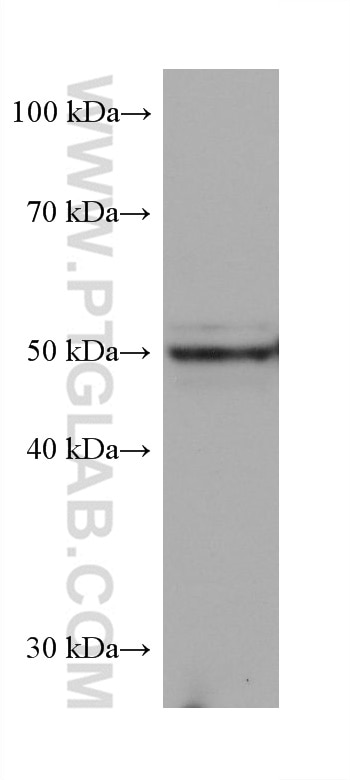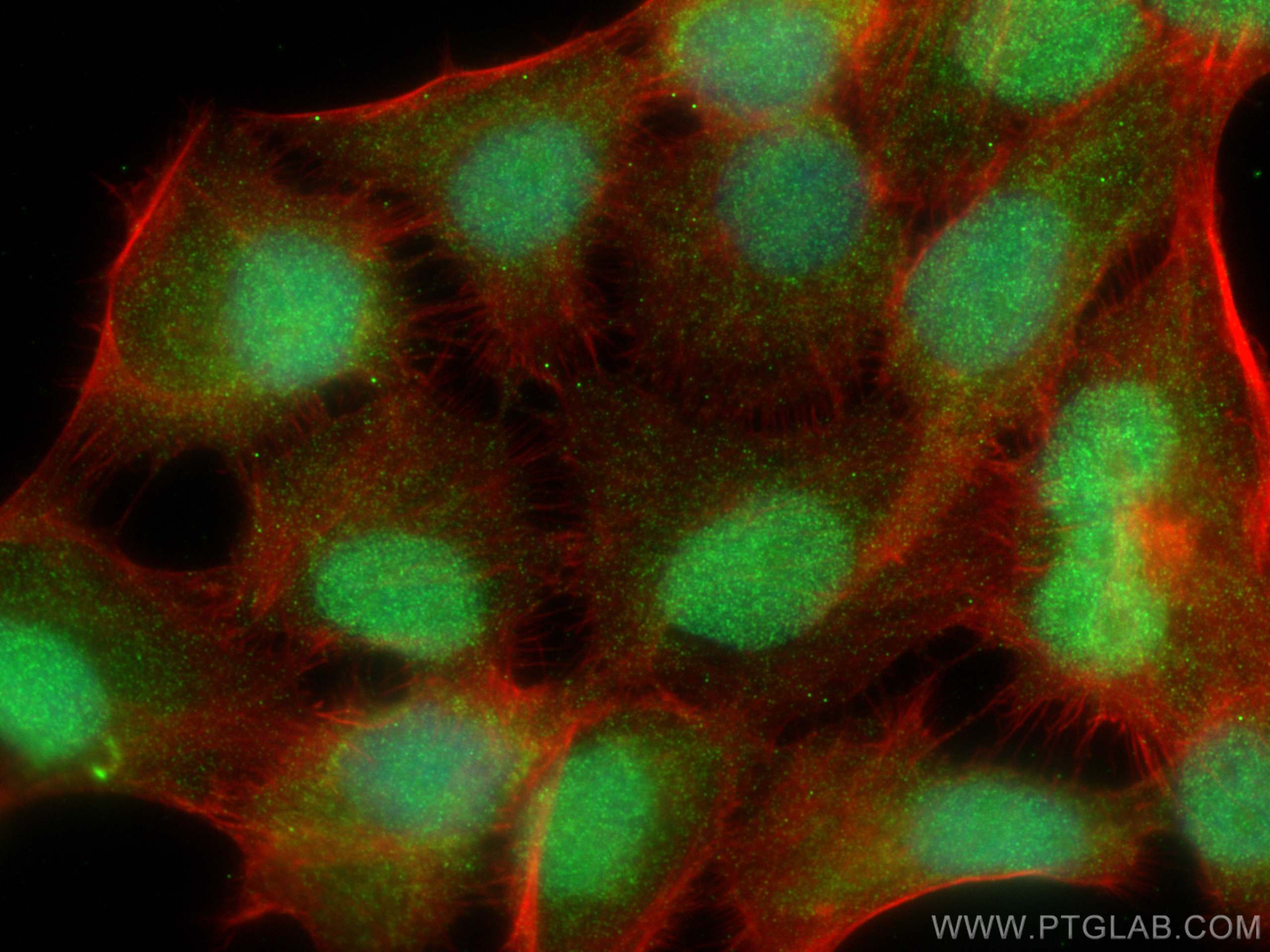Tested Applications
| Positive WB detected in | A549 cells, HeLa cells, A375 cells, mouse testis tissue, K-562 cells, U2OS cells |
| Positive IF/ICC detected in | HaCaT cells |
Recommended dilution
| Application | Dilution |
|---|---|
| Western Blot (WB) | WB : 1:5000-1:50000 |
| Immunofluorescence (IF)/ICC | IF/ICC : 1:400-1:1600 |
| It is recommended that this reagent should be titrated in each testing system to obtain optimal results. | |
| Sample-dependent, Check data in validation data gallery. | |
Published Applications
| IHC | See 1 publications below |
Product Information
68097-1-Ig targets PRAME in WB, IHC, IF/ICC, ELISA applications and shows reactivity with Human, mouse, rat samples.
| Tested Reactivity | Human, mouse, rat |
| Cited Reactivity | human |
| Host / Isotype | Mouse / IgG2b |
| Class | Monoclonal |
| Type | Antibody |
| Immunogen | PRAME fusion protein Ag1906 Predict reactive species |
| Full Name | preferentially expressed antigen in melanoma |
| Calculated Molecular Weight | 509 aa, 58 kDa |
| Observed Molecular Weight | 50 kDa |
| GenBank Accession Number | BC014074 |
| Gene Symbol | PRAME |
| Gene ID (NCBI) | 23532 |
| RRID | AB_2918834 |
| Conjugate | Unconjugated |
| Form | Liquid |
| Purification Method | Protein A purification |
| UNIPROT ID | P78395 |
| Storage Buffer | PBS with 0.02% sodium azide and 50% glycerol pH 7.3. |
| Storage Conditions | Store at -20°C. Stable for one year after shipment. Aliquoting is unnecessary for -20oC storage. 20ul sizes contain 0.1% BSA. |
Background Information
The PRAME (preferentially expressed antigen of melanoma) gene was previously shown to be overexpressed in ovarian/primary peritoneal serous carcinoma compared with malignant mesothelioma using gene expression arrays. It is considered a melanocyte differentiation antigen which is overexpressed in both solid and hematologic tumors. In normal tissue, a very low level of PRAME expression is found in normal testis, adrenals, ovary and endometrium. A high level of PRAME expression has been reported for several solid tumors, including ovarian cancer, breast cancer, lung cancer and melanomas, medulloblastoma, sarcomas, head and neck cancers, neuroblastoma, renal cancer, and Wilms'tumor. As a nuclear transcriptional repressor protein, PRAME binds to retinoic acid receptor a, thereby inhibiting retinoic acid induced differentiation, growth arrest, and apoptosis.
Protocols
| Product Specific Protocols | |
|---|---|
| WB protocol for PRAME antibody 68097-1-Ig | Download protocol |
| IF protocol for PRAME antibody 68097-1-Ig | Download protocol |
| Standard Protocols | |
|---|---|
| Click here to view our Standard Protocols |
Publications
| Species | Application | Title |
|---|---|---|
Brain Tumor Pathol Primary intracranial sarcoma associated with DICER1 mutant: a case report and preclinical investigation |
